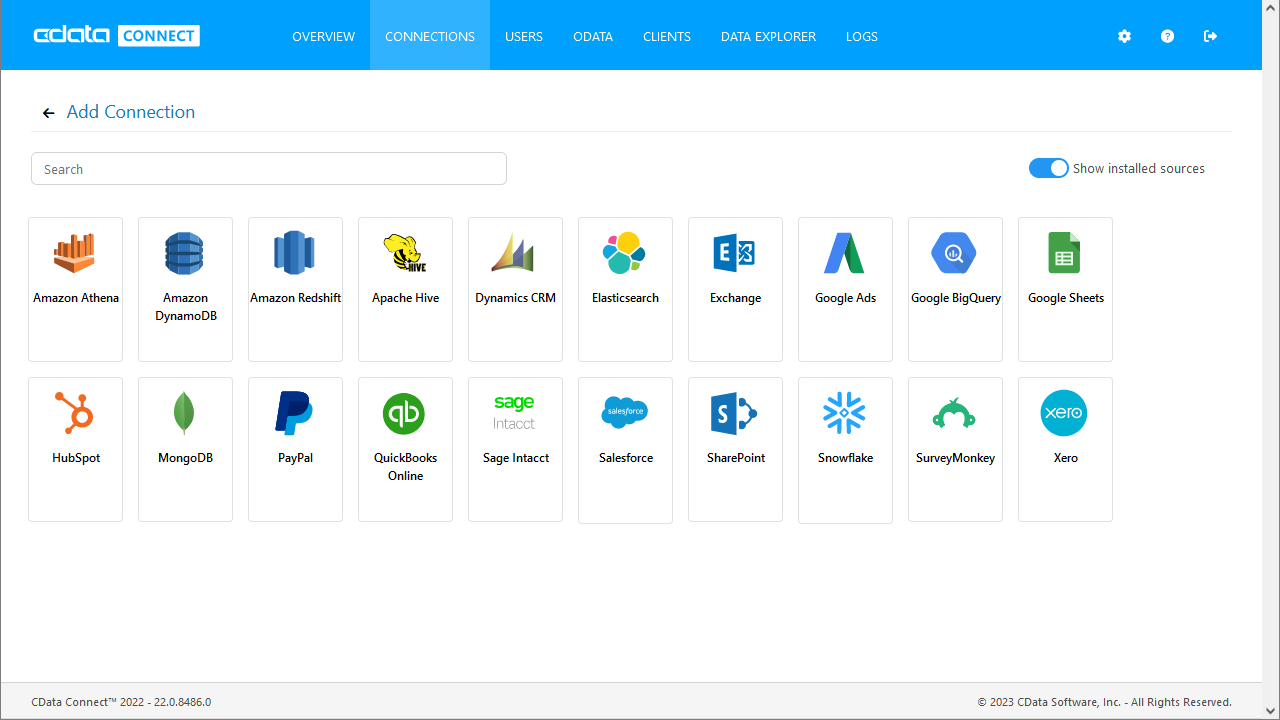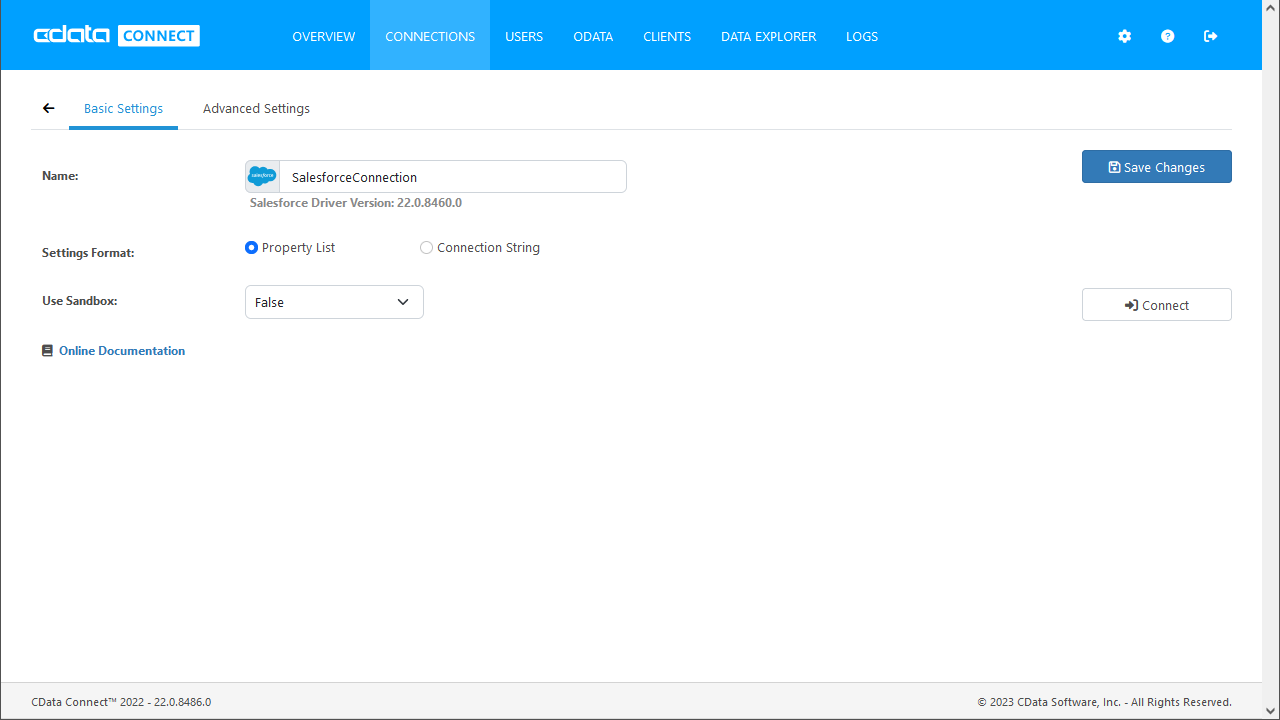Discover how a bimodal integration strategy can address the major data management challenges facing your organization today.
Get the Report →Create Redshift Dashboards in Bold BI
Use CData Connect Server to create a virtual SQL Server Database for Redshift data to build custom dashboards in Bold BI.
Bold BI allows you to create, share, and collaborate on interactive BI dashboards. When paired with CData Connect Server, you get instant access to Redshift data for visualizations, dashboards, and more. This article shows how to create a virtual database for Redshift and build reports from Redshift data in Bold BI.
CData Connect Server provides a pure SQL Server interface for Redshift, allowing you to easily build reports from live Redshift data in Bold BI — without replicating the data to a natively supported database. As you build visualizations, Bold BI generates SQL queries to gather data. Using optimized data processing out of the box, CData Connect Server pushes all supported SQL operations (filters, JOINs, etc) directly to Redshift, leveraging server-side processing to quickly return the requested Redshift data.
Create a Virtual SQL Server Database for Redshift Data
CData Connect Server uses a straightforward, point-and-click interface to connect to data sources and generate APIs.
- Login to Connect Server and click Connections.
![Adding a connection]()
- Select "Redshift" from Available Data Sources.
-
Enter the necessary authentication properties to connect to Redshift.
To connect to Redshift, set the following:
- Server: Set this to the host name or IP address of the cluster hosting the Database you want to connect to.
- Port: Set this to the port of the cluster.
- Database: Set this to the name of the database. Or, leave this blank to use the default database of the authenticated user.
- User: Set this to the username you want to use to authenticate to the Server.
- Password: Set this to the password you want to use to authenticate to the Server.
You can obtain the Server and Port values in the AWS Management Console:
- Open the Amazon Redshift console (http://console.aws.amazon.com/redshift).
- On the Clusters page, click the name of the cluster.
- On the Configuration tab for the cluster, copy the cluster URL from the connection strings displayed.
![Configuring a connection (SQL Server is shown).]()
- Click Save Changes
- Click Privileges -> Add and add the new user (or an existing user) with the appropriate permissions.
With the virtual database created, you are ready to connect to Redshift data from Bold BI.
Visualize Live Redshift Data in Bold BI
The steps below outline connecting to CData Connect Server from Bold BI to create a new Redshift data source and build a simple visualization from the data.
- Log into your Bold BI instance, click the data sources tab, create a new data source, and choose the SQL Server connector.
- Choose the basic configuration and set the connection properties:
- Name: Name your connection
- Server name: Your Connect Server instance (CONNECT_SERVER_URL)
- Port: 1433
- Username: Your Connect Server username
- Password: Your Connect Server password
- Mode: Choose Live to query Redshift on-demand or choose Extract to load the data into Bold BI
- Database: Choose the database you created from the drop-down menu (redshiftdb)
- Click Connect
- Select the table to visualize and drag it onto the workspace.
- Select a visualization style and add it to the report.
- Click the gear icon for the visualization to configure the visualization properties and assign columns to the visualization.
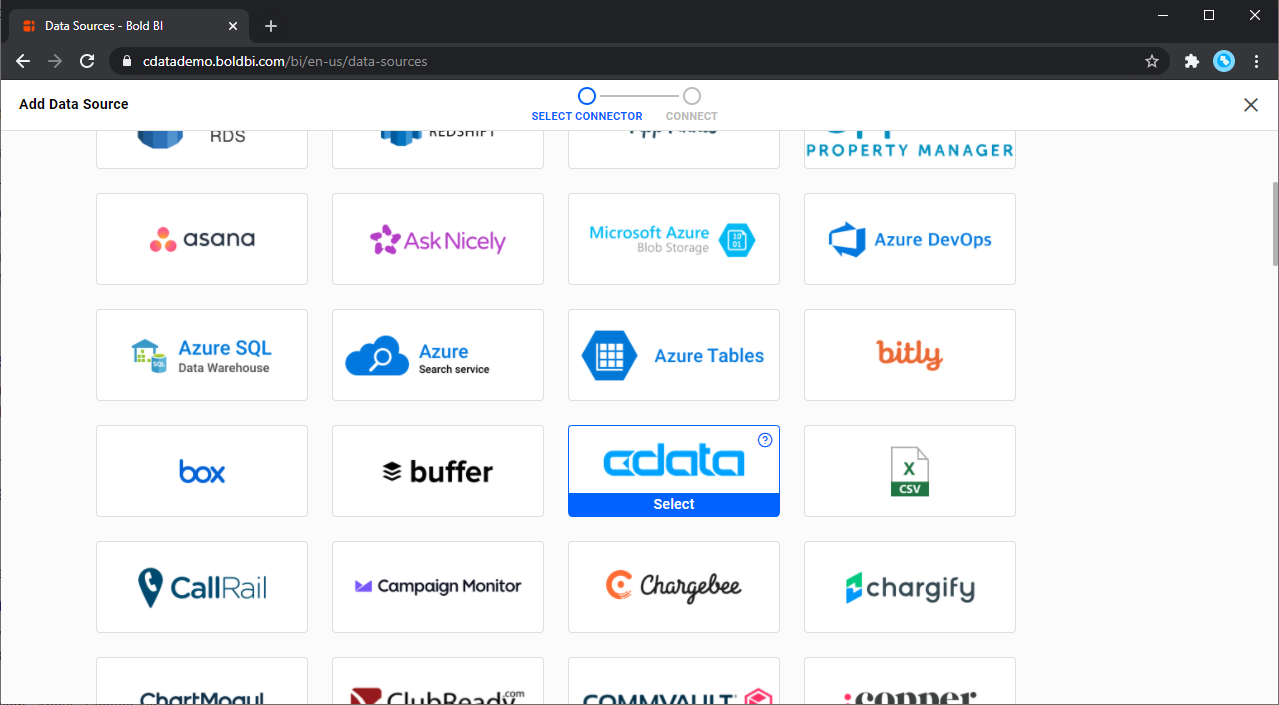
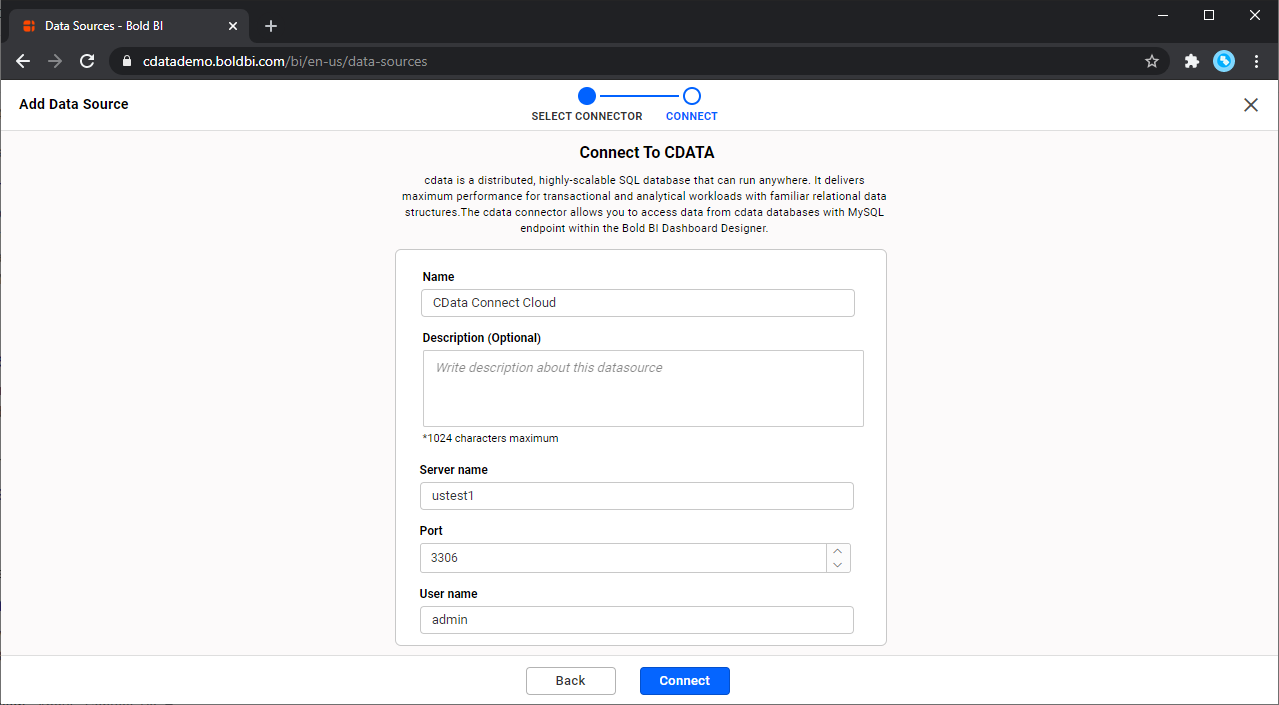
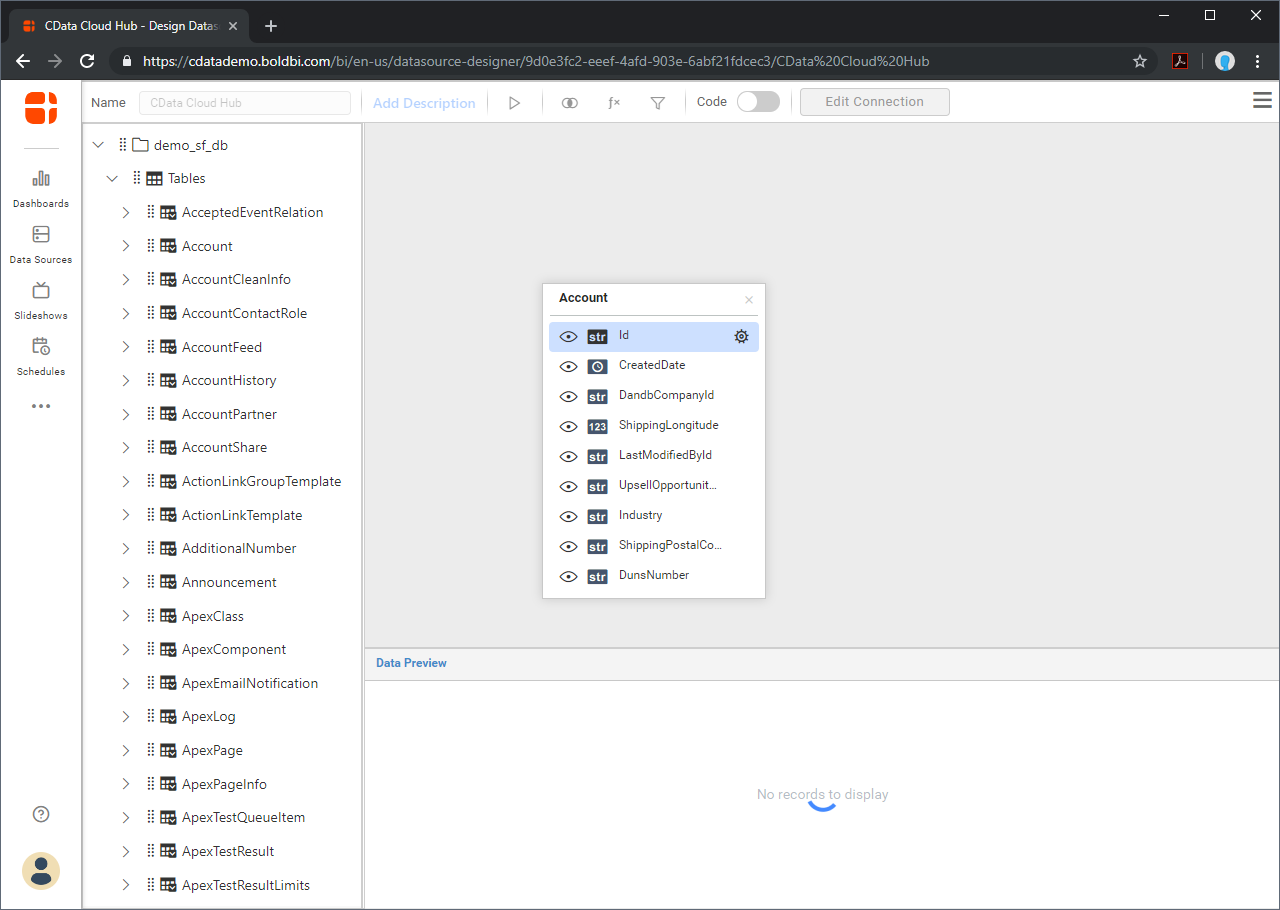
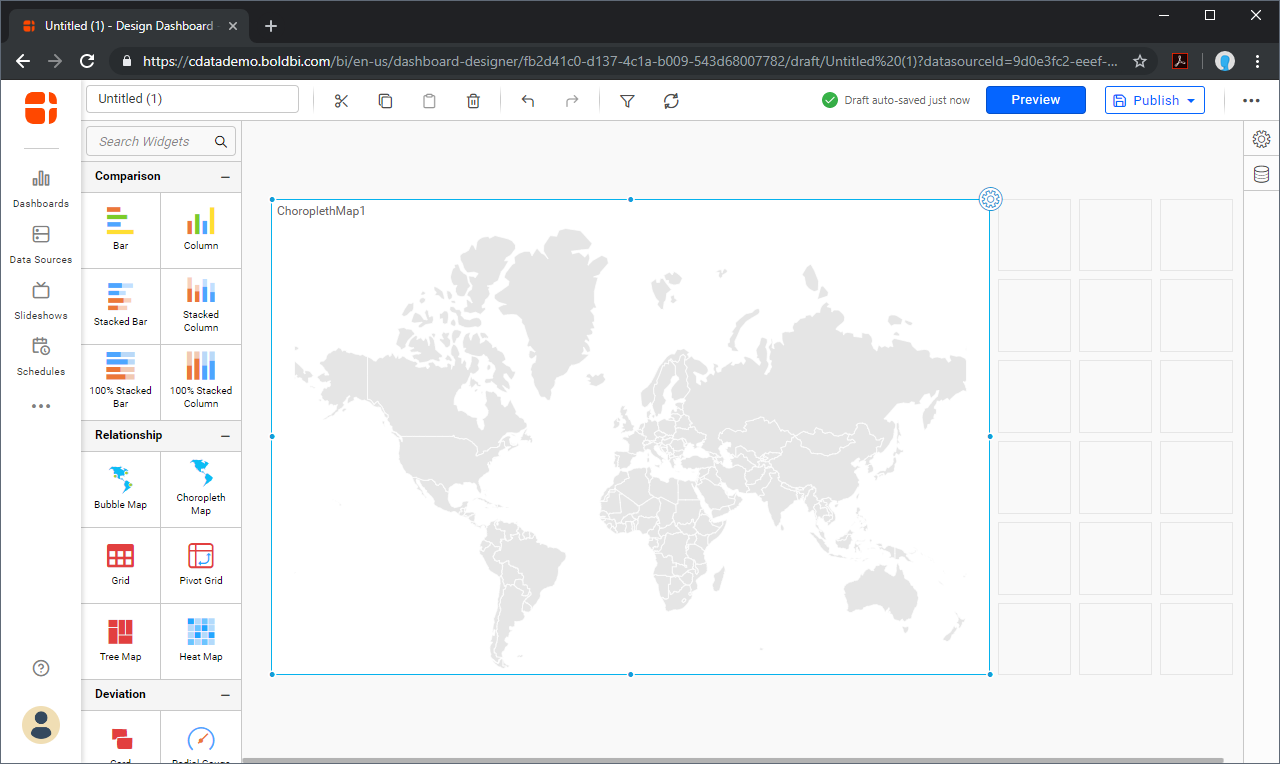
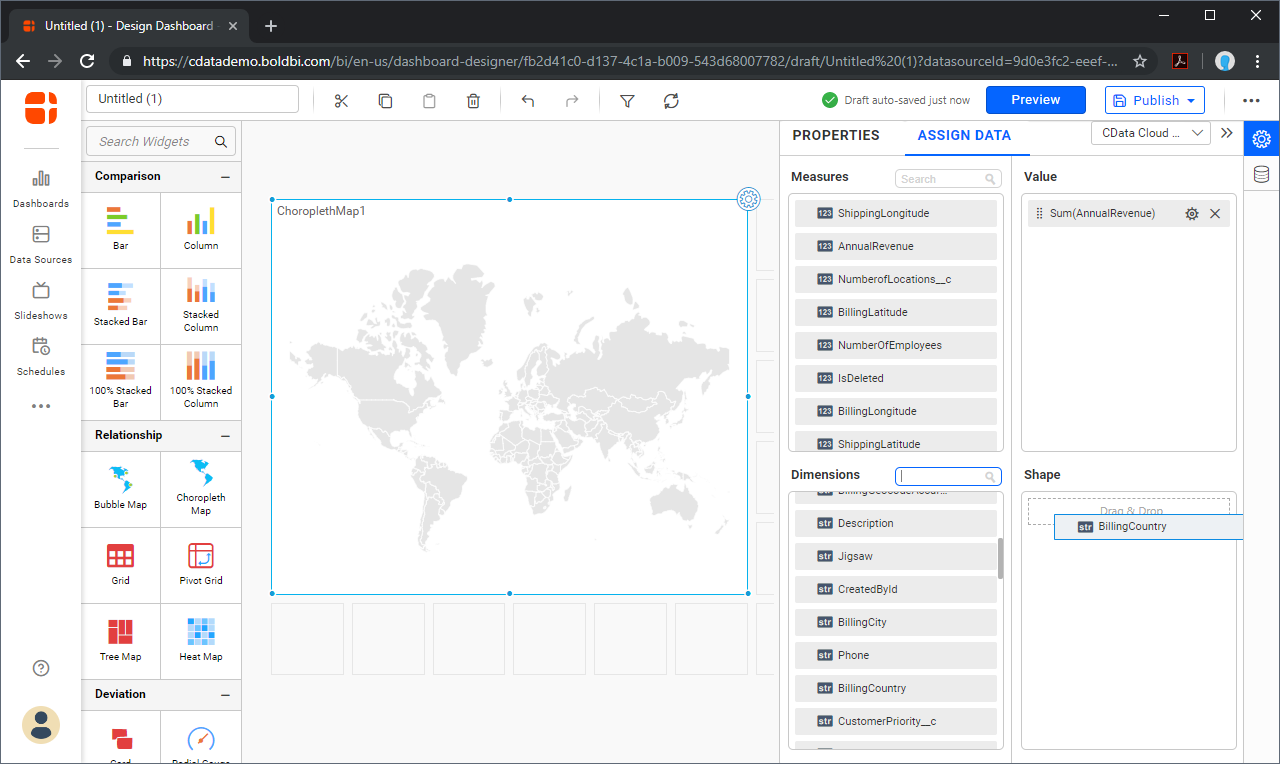
SQL Access to Redshift Data from Applications
Now you have a direct connection to live Redshift data from your Bold BI workbook. You can create more data sources and new visualizations, build reports, and more — all without replicating Redshift data.
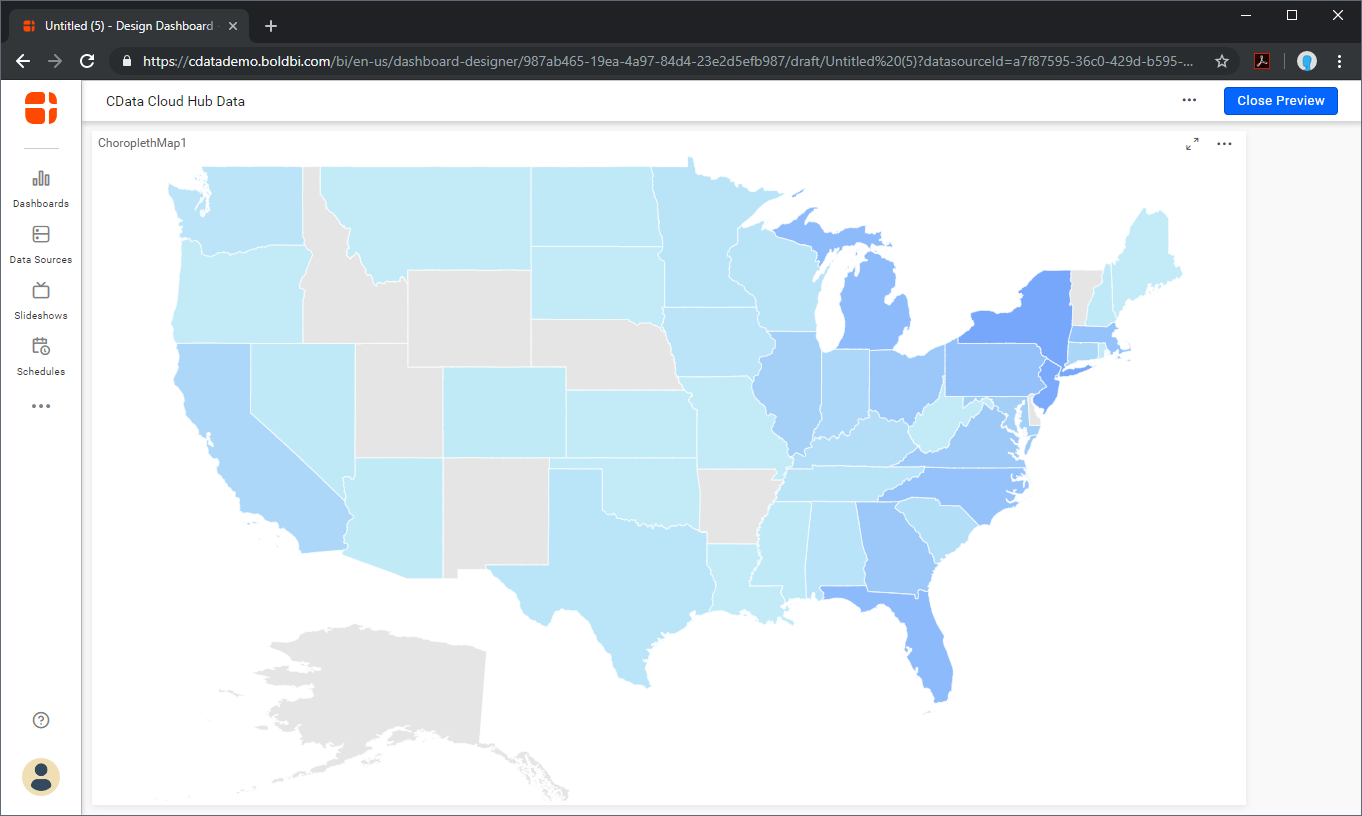
To get SQL data access to 200+ SaaS, Big Data, and NoSQL sources directly from your applications, see the CData Connect page.






